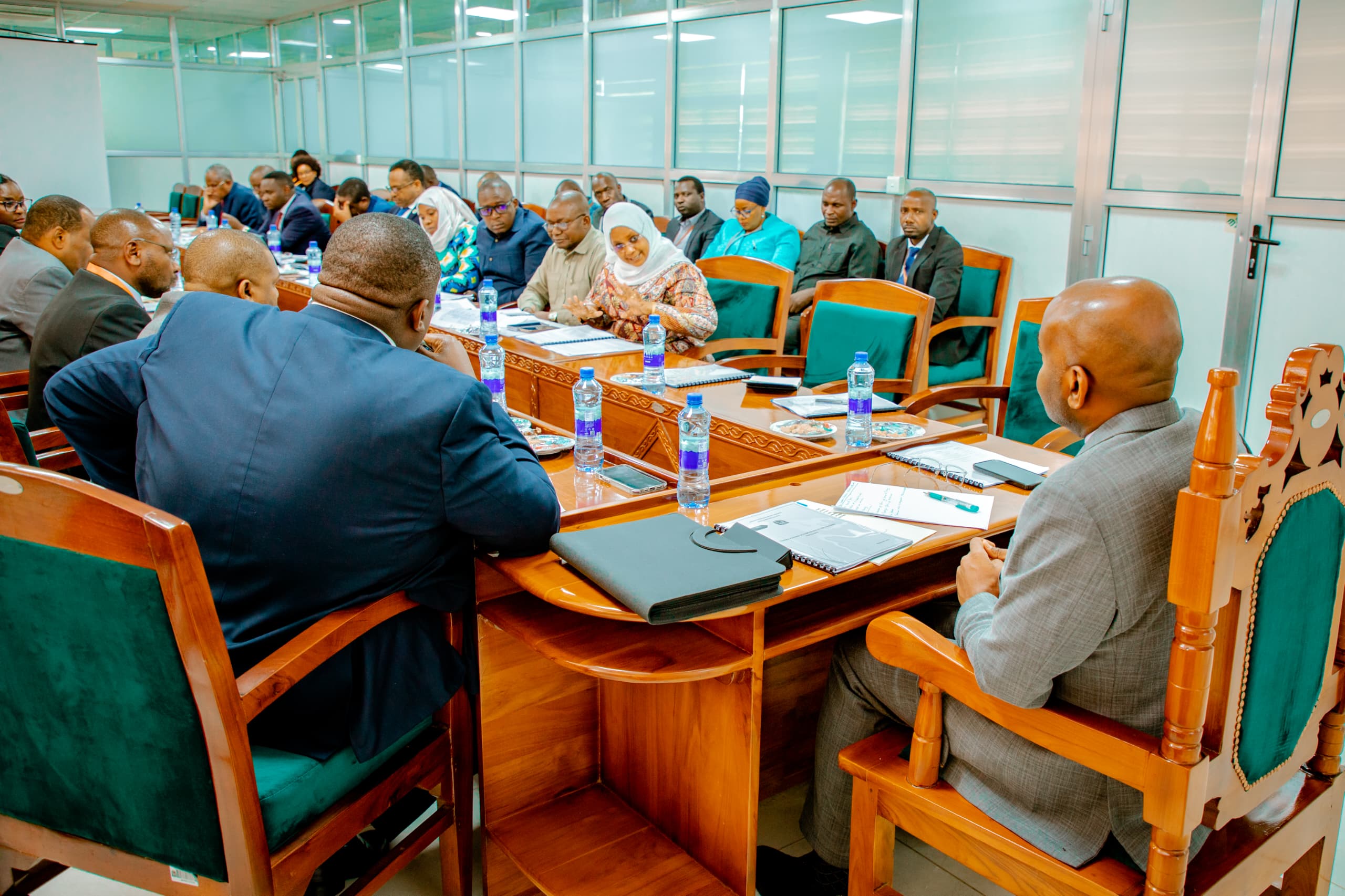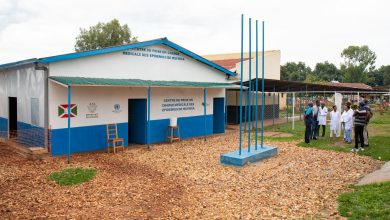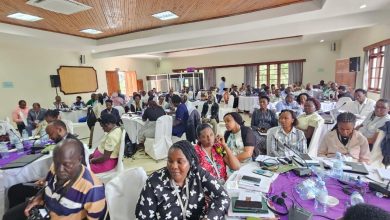National Action Plan implementation on course to boost blue economy

DODOMA: MINISTERS from sectoral ministries convened in Dodoma for the presentation of the National Action Plan (NAP) on the implementation of blue economy activities for 2024/25 – 2025/26, in a joint effort to create new opportunities for economic diversification and sustainable development.
The meeting, which was preceded by a session of Permanent Secretaries from the same ministries, marks a crucial step towards strengthening the blue economy sector and ensuring that its resources are managed efficiently for long-term economic growth.
Speaking at the opening, the Minister of State in the Vice President’s Office (Union and Environment), Mr Hamad Yusuph Masauni, stated that the NAP provides key strategies and recommendations for implementing blue economy activities over the next two years.
He emphasised that the plan seeks to maximise the economic potential of Tanzania’s marine and freshwater resources while ensuring environmental sustainability.
“It aims to harness the immense potential of our oceans, seas and coastal areas to drive economic growth, create jobs and ensure environmental sustainability.
The plan encompasses initiatives related to fisheries, aquaculture, maritime transport, renewable energy, tourism and biodiversity conservation,” he said.
Ministers at the meeting stressed the importance of collaboration and coordination among different stakeholders to ensure the successful implementation of the NAP.
They underscored the need for increased investment in infrastructure, technology and capacity building to maximise the benefits of the blue economy for all Tanzanians.
Additionally, they highlighted the significance of integrating environmental considerations into all blue economy activities to promote long-term sustainability. In his remarks, Mr Masauni explained that the Vice President’s Office has been assigned the responsibility of supervising all blue economy activities on Mainland Tanzania.
This includes coordination, monitoring and conducting assessments of all projects and initiatives under the plan. “Therefore, the VPO, in collaboration with sectors aligned with the blue economy, has prepared the NAP for the implementation of the National Blue Economy Policy for 2024/25 and 2025/26,” he noted.
He added that the remaining activities for 2024/25 will be completed in the second half of the budget cycle. Mr Masauni also highlighted the blue economy’s potential to contribute significantly to Tanzania’s GDP and create new economic opportunities.
He stressed the need for a holistic and integrated approach to ensure the sustainable management and utilisation of marine and freshwater resources.
As part of the discussions, he urged ministers attending the meeting to endorse the plan, reaffirming the government’s commitment to promoting conservation and the sustainable use of marine ecosystems.
He also emphasised the importance of incorporating climate change considerations into all aspects of the NAP to build resilience and adaptability in the face of environmental challenges. The presentation of the NAP was met with enthusiasm and support from all ministers present.
The collaborative efforts of sectoral ministries, along with the endorsement of Permanent Secretaries, indicate a strong commitment to realising the full potential of the blue economy for national development.
The National Blue Economy Policy 2024, along with its implementation strategy for 2024–2034, was launched on June 5, 2024.
This policy sets a clear roadmap for maximising the economic value of Tanzania’s ocean and freshwater resources while ensuring environmental conservation.
The policy focuses on the sustainable use and management of marine and coastal resources to support socioeconomic development.
It establishes a comprehensive framework to enhance blue economy activities across multiple sectors, including fisheries, natural resources, tourism, water, irrigation, energy, transportation, minerals, industry, trade and environmental conservation.
The blue economy plays a critical role in global economic development and Tanzania is positioning itself as a key player in utilising its vast marine and freshwater resources.
The government recognises that effective governance, strategic investment and community involvement are essential to ensuring that these resources contribute to economic growth while preserving biodiversity.
So far, the government, in collaboration with development partners and the private sector, has developed several strategies to harness the blue economy’s potential.
Investments have been made in fisheries, aquaculture and port infrastructure, while research and innovation continue to be prioritised in efforts to improve the sustainability of marine-based industries.
Furthermore, capacitybuilding initiatives are being implemented to equip local communities with the necessary skills to participate in and benefit from blue economy activities.
These efforts aim to ensure that economic gains from the sector are distributed equitably, reducing poverty and improving livelihoods in coastal and inland water regions.
As Tanzania moves forward with the implementation of the National Blue Economy Policy and its action plan, stakeholders have been encouraged to work closely to overcome challenges, strengthen oversight and ensure transparency in resource management.
The government remains committed to supporting sustainable development through the blue economy and calls on investors, researchers and the public to engage in its efforts to make Tanzania a leader in marine and freshwater resource utilisation.
With proper implementation and commitment from all stakeholders, the blue economy has the potential to drive inclusive economic growth, create employment opportunities and enhance environmental sustainability for future generations.





